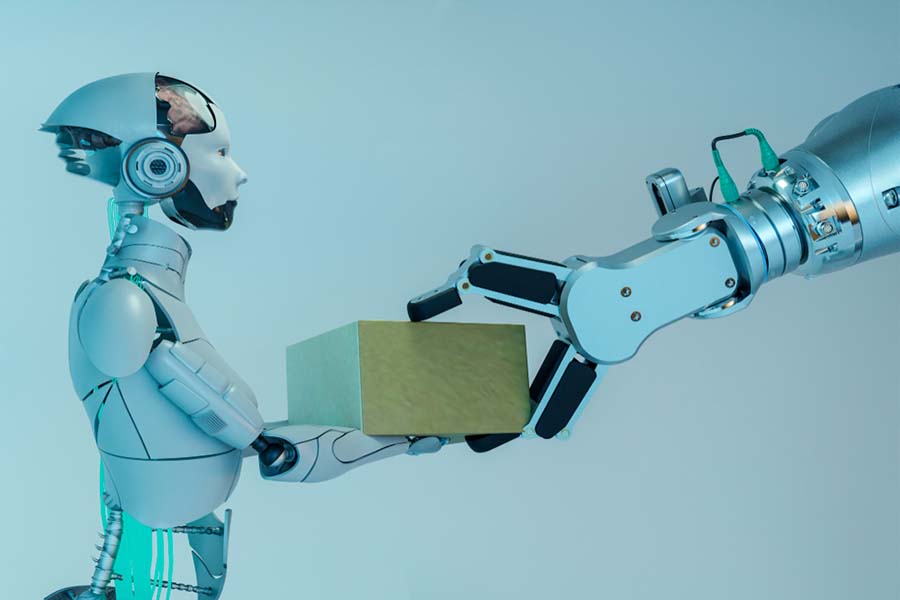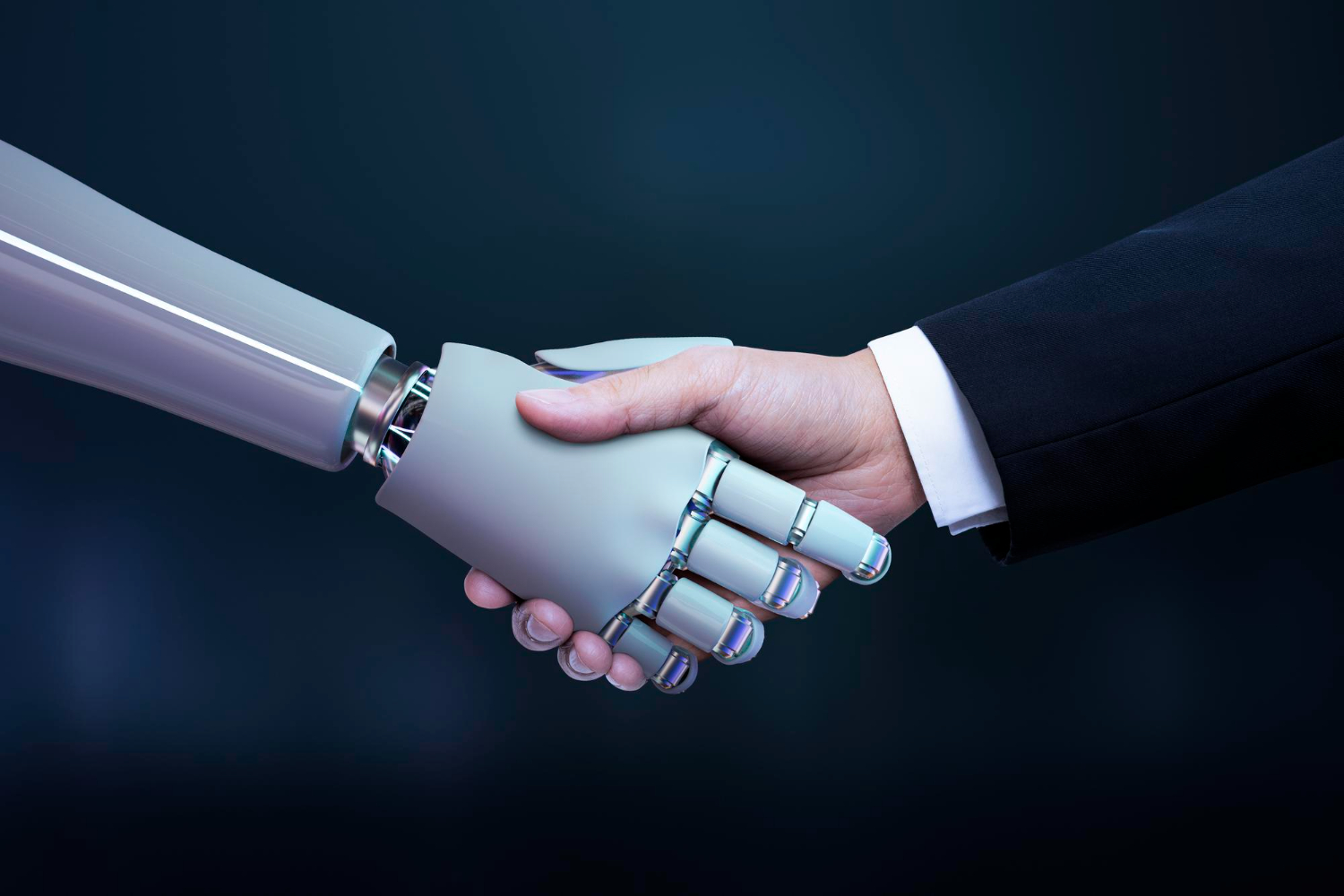The Next Decade of AI: Predictions & Forecasts

Artificial Intelligence (AI) has rapidly evolved in recent years, transforming various aspects of our lives. AI has become integral to our daily routines, from virtual assistants and chatbots to self-driving cars and personalised recommendations. As we enter the next decade, the potential of AI seems boundless. In this blog, we will explore some exciting predictions and forecasts for the future of AI.
Advancements in Machine Learning Algorithms
Machine learning algorithms are the backbone of AI systems, enabling them to learn from data and make intelligent decisions. Over the next decade, significant advancements in machine learning algorithms are expected. These algorithms will become more robust, efficient, and capable of handling complex tasks.
One area of advancement is reinforcement learning. This technique allows AI systems to learn by trial and error, improving their decision-making abilities. As algorithms become more sophisticated, they can navigate complex environments and optimise outcomes.
Another area of development is unsupervised learning. Currently, most machine learning algorithms require labelled data to train. However, unsupervised learning algorithms can discover patterns and structures in unlabeled data, enabling AI systems to learn from vast amounts of information without human annotation. This will expand the possibilities of AI applications in areas where labelled data is scarce or expensive to obtain.
Furthermore, deep learning techniques will continue to evolve. Deep learning involves training artificial neural networks with multiple layers of interconnected nodes to process and analyse data. As computational power increases and more complex network architectures are developed, AI systems can extract higher-level abstractions from data, leading to more accurate predictions and insights.
In summary, advancements in machine learning algorithms over the next decade will result in more robust, efficient, and capable AI systems. The progress in reinforcement learning, unsupervised learning, and deep learning techniques will enable AI to handle complex tasks and process diverse data types more effectively.
Enhanced Natural Language Processing (NLP)
Natural Language Processing (NLP) has revolutionised how we interact with technology through voice assistants and chatbots. In the next decade, NLP capabilities will undoubtedly reach new heights. AI-powered language models will become more conversational and better at understanding context, sarcasm, and nuances.
One area of improvement in NLP is contextual understanding. AI systems struggle to grasp the meaning behind ambiguous language and context-dependent phrases. However, advancements in NLP algorithms will enable AI better to understand the intent and meaning of human language, improving the accuracy of responses and interactions. This will lead to more seamless human-machine interactions, making AI assistants more intuitive and helpful.
Additionally, sentiment analysis will play a crucial role in enhancing NLP capabilities. AI systems will be able to recognise and interpret emotions expressed in text or speech, allowing for more empathetic and personalised interactions. This will enable AI assistants to adapt their responses based on the user’s emotional state, providing a more human-like experience.
Moreover, developing AI models that can understand sarcasm and nuances in language will further enhance NLP capabilities. Sarcasm detection algorithms will be able to identify sarcastic remarks, preventing misunderstandings and improving the accuracy of AI responses. Understanding nuances in language will enable AI systems to provide more contextually relevant information and recommendations, enhancing the overall user experience.
In summary, enhanced NLP capabilities in the next decade will make AI-powered language models more conversational and better at understanding context, sarcasm, and nuances. This improvement will pave the way for more seamless human-machine interactions, making AI assistants more intuitive and helpful.
AI in Healthcare
The healthcare industry will benefit immensely from AI advancements in the next decade. AI-powered diagnosis systems can assist medical professionals in accurately detecting diseases and providing personalised treatment plans.
Machine learning algorithms will analyse vast amounts of medical data, such as patient records and research papers, to uncover valuable insights and enhance medical research. This will lead to more accurate diagnoses, improved treatment outcomes, and the discovery of new treatments or interventions. AI systems can identify patterns and correlations in medical data that human experts may miss, providing valuable decision support for healthcare professionals.
Additionally, robots and AI-powered devices will aid in performing complex surgeries with precision, reducing the risk of human error. Surgical robots can operate with greater accuracy and control, minimising tissue damage and improving patient recovery. AI systems can analyse real-time data during surgeries, providing surgeons with valuable feedback and guidance, further enhancing surgical outcomes.
Furthermore, AI will play a crucial role in personalised medicine. AI systems can provide tailored treatment plans and drug recommendations by analysing individual patient data, including genetic information, lifestyle factors, and medical history. This will optimise patient outcomes and reduce the likelihood of medication adverse reactions.
In summary, AI advancements in healthcare will revolutionise disease detection, treatment planning, medical research, and surgical procedures. Machine learning algorithms will unlock valuable insights from medical data, robots and AI-powered devices will enhance surgical precision, and personalised medicine will become a reality.
AI-Driven Customer Experience
AI has already transformed the way businesses interact with their customers. In the next decade, AI will continue to enhance the customer experience. Personalisation will be taken to new heights, with AI systems analysing vast customer data to offer tailored recommendations, promotions, and customer support.
One area where AI will significantly impact customer experience is personalised recommendations. AI algorithms will analyse customer behaviour, preferences, and purchase history to provide highly targeted and relevant product recommendations. This will improve customer satisfaction and drive sales and customer loyalty.
Moreover, AI-powered chatbots will become more intelligent, understanding customer queries better and providing instant solutions. Natural Language Processing algorithms will enable chatbots to comprehend complex inquiries and provide accurate responses, reducing the need for human intervention. This will lead to faster response times and enhanced customer support.
Additionally, AI-powered virtual shopping assistants will assist customers in finding the perfect products, enhancing the overall shopping experience. Using natural language and computer vision, virtual shopping assistants will understand customer preferences, suggest suitable products, and even offer virtual try-on experiences. This will provide customers with personalised and interactive shopping experiences from the comfort of their homes.
Furthermore, AI will enable businesses to leverage customer data to anticipate needs and proactively address issues. By analysing customer feedback, sentiment analysis algorithms can identify potential problems or dissatisfaction and trigger appropriate actions to resolve them. This proactive approach will enhance customer satisfaction and loyalty.
In summary, AI-driven customer experience will continue to evolve in the next decade. Personalisation, chatbots, virtual shopping assistants, and proactive issue resolution will enhance customer satisfaction and drive business growth.
AI in Education
The education sector will undergo significant transformations with the integration of AI technologies. Intelligent tutoring systems can personalise the learning experience, adapting to each student’s pace and style of learning.
AI-powered tutoring systems will analyse student data, including performance, learning preferences, and strengths and weaknesses, to provide personalised learning recommendations. This will enable students to learn at their own pace, reinforcing concepts they struggle with and accelerating their progress in areas of strength.
Furthermore, AI-powered chatbots can provide instant support and answer students’ queries, reducing the burden on educators. Chatbots can provide explanations, additional resources, and guidance, promoting independent learning. This allows educators to focus on more strategic tasks, such as curriculum development and personalised instruction.
Moreover, AI-powered virtual reality (VR) and augmented reality (AR) will enable more immersive and interactive learning environments. AI algorithms can create virtual simulations that allow students to explore complex concepts, historical events, or scientific phenomena. This hands-on approach to learning will enhance engagement, understanding, and retention.
Additionally, AI can support educators in developing customised learning materials. By analysing student performance data, AI algorithms can identify knowledge gaps and create tailored learning resources to address them. This will ensure students receive the right content at the right time, optimising their learning experience.
In summary, AI integration in education will revolutionise the learning experience. Intelligent tutoring systems, chatbots, and VR/AR technologies will personalise learning, provide instant support, and create immersive learning environments. AI algorithms will enable educators to develop customised learning materials, ensuring optimal learning outcomes for students.
Autonomous Vehicles and Smart Transportation
Self-driving cars and intelligent transportation systems have already made their debut, but the next decade will witness exponential growth in this field. AI algorithms will continue to evolve, enabling autonomous vehicles to navigate complex traffic scenarios safely.
Advancements in computer vision and sensor technologies will enhance the perception capabilities of autonomous vehicles. AI algorithms can accurately detect and recognise objects, pedestrians, and road signs in various weather and lighting conditions. This will ensure the safety of passengers and other road users.
Moreover, AI will optimise traffic flow, reduce congestion, and enhance transportation efficiency. AI-powered traffic management systems can analyse real-time traffic data, including vehicle density, road conditions, and traffic patterns, to dynamically adjust traffic signals and routes. This will minimise travel times, reduce fuel consumption, and alleviate traffic congestion.
Furthermore, AI-powered drones will play a significant role in transportation. Delivery drones will become more common, offering faster and more efficient delivery services. AI algorithms will enable drones to navigate complex airspace, avoid obstacles, and optimise delivery routes. This will revolutionise the logistics industry, enabling quick and secure delivery of goods.
In summary, autonomous vehicles and intelligent transportation systems will experience significant growth in the next decade. AI algorithms will enable safe navigation, optimise traffic flow, and revolutionise delivery services through AI-powered drones.
AI Ethics and Responsible AI Development
Ensuring ethical and responsible AI development becomes paramount as AI becomes more pervasive. The next decade will witness increased efforts in addressing biases in AI algorithms, promoting transparency, and ensuring the accountable use of AI systems.
One area of focus will be addressing biases in AI algorithms. AI systems are trained on data; if the training data contains biases, the AI system may perpetuate those biases in its decision-making. To ensure fair and unbiased AI systems, efforts will be made to identify and mitigate bias in training data and algorithms.
Transparency in AI decision-making will also be emphasised. AI systems should provide understandable explanations for their decisions, especially in critical domains such as healthcare and justice. This will enable humans to understand and evaluate the reasoning behind AI-generated outcomes, promoting trust and accountability.
Additionally, regulatory frameworks will be put in place to protect individuals’ privacy and prevent the misuse of AI technology. Data protection regulations will govern AI systems’ collection, storage, and use of personal data. Ethical guidelines and standards will be developed to ensure AI’s responsible and ethical use in all domains.
Furthermore, inclusivity will be prioritised in AI development. Efforts will be made to ensure that AI systems are designed to be accessible and usable by diverse populations. This includes considering different cultural perspectives, addressing language barriers, and avoiding discriminatory practices.
Conclusion
The next decade holds immense potential for AI advancements. From more robust machine learning algorithms to enhanced natural language processing, AI will continue transforming industries such as healthcare, customer experience, education, and transportation. However, it is crucial to approach AI development responsibly, ensuring ethical guidelines are in place to protect individuals and society. As we move forward, embracing AI’s potential while addressing its ethical implications will be vital to harnessing its true power for the betterment of humanity.
Be sure to check out our other related posts if you enjoyed this one:
- The Rise of Collaborative Robots: Transforming Industries
- Unmasking Cyber Secrets: The Art of Deception Revealed!
- Decoding Cyber Threats: The Social Engineering Menace
- Unlock the Ultimate Quest: Ready Player One’s Audio Adventure!
- Revolutionising Wellness: Metaverse Therapy Unleashes Mental Liberation!
- Code Mastery Unleashed: Transform Your Skills with Clean Code by Robert C. Martin! 🚀
- Top Must-Have Tech Gadgets for Kids – Unbelievable Fun!
- Mastering Crypto Trading: Proven Strategies
- Unveiling Ethereum 2.0: Advancements & Impact
- AI Transforms E-Commerce: A Digital Revolution
Sign up for updates on this blog and our latest business posts if you enjoyed reading this one.
Share our blog content with your friends and colleagues via Facebook, Twitter, Pinterest, LinkedIn, email or WhatsApp links below and help them stay informed about the latest insights on business, marketing, finance, lifestyle, and society. Let’s build a knowledge-sharing community and empower each other to achieve our goals.
FAQ
What advancements are expected in machine learning algorithms over the next decade?
Advancements in machine learning algorithms are expected to make them more robust, efficient, and capable of handling complex tasks. This includes progress in reinforcement learning, unsupervised learning, and deep learning techniques.
How will natural language processing (NLP) capabilities evolve in the next decade?
NLP capabilities will become more conversational and better at understanding context, sarcasm, and nuances. AI-powered language models will improve contextual understanding, sentiment analysis, and understanding of sarcasm and nuances in language.
How will AI revolutionise the healthcare industry in the next decade?
AI advancements in healthcare will revolutionise disease detection, treatment planning, medical research, and surgical procedures. Machine learning algorithms will unlock valuable insights from medical data, robots and AI-powered devices will enhance surgical precision, and personalised medicine will become a reality.
What impact will AI have on customer experience in the next decade?
AI will enhance the customer experience by offering personalised recommendations, improving customer support through intelligent chatbots, providing virtual shopping assistants, and enabling proactive issue resolution.
Credits
Featured photo by Tara Winstead on Pexels.








